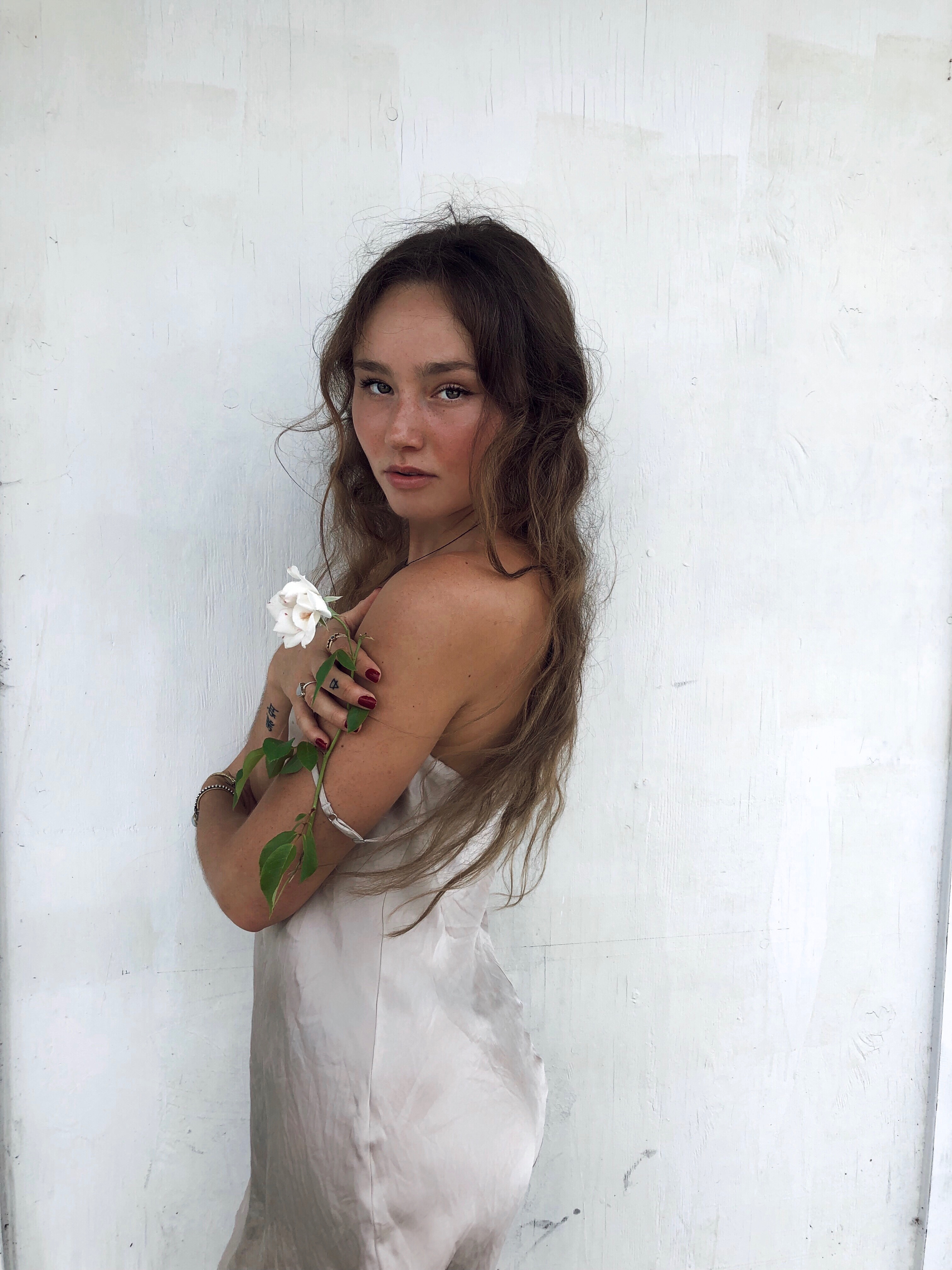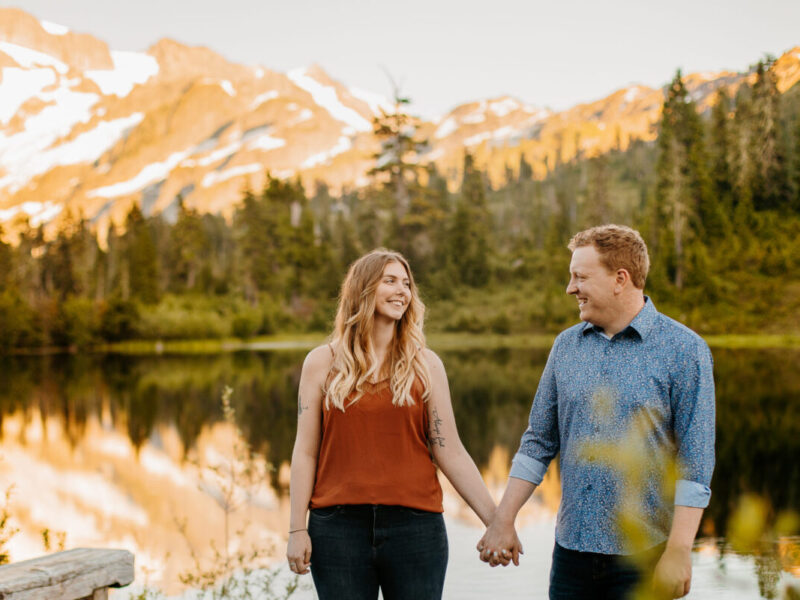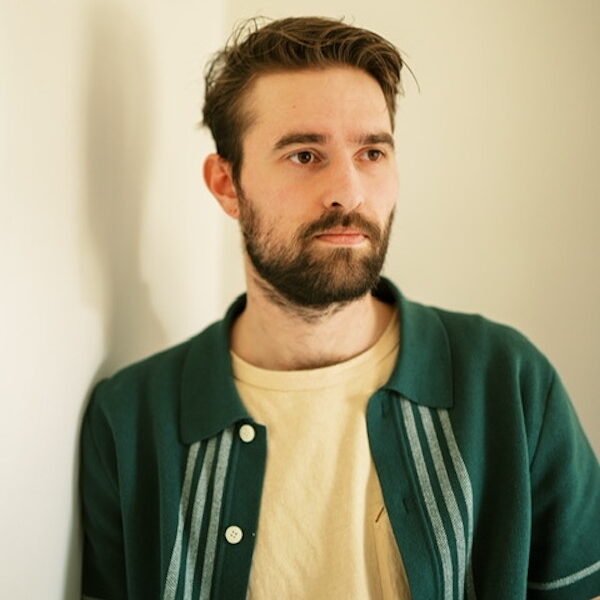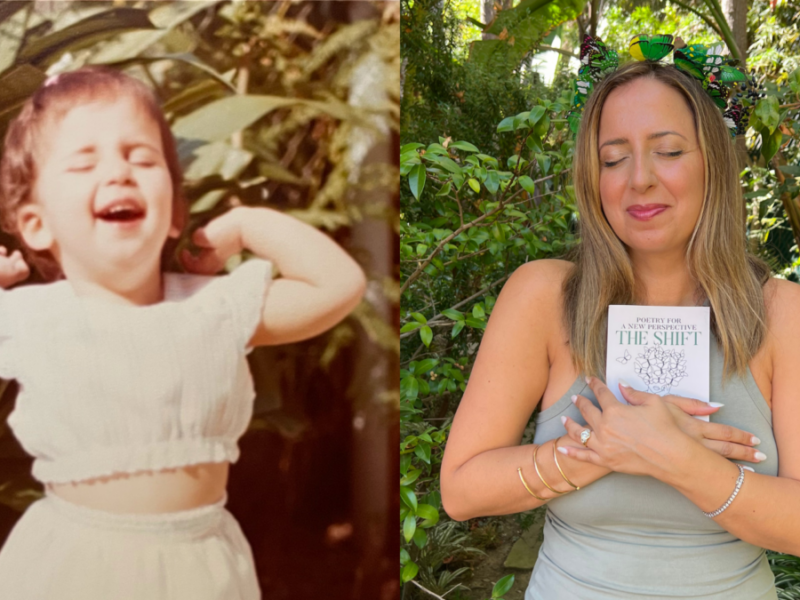A Conversation with J.M. Farkas and Allie Michelle
J.M. Farkas: Who are your “Poetry Mothers” (or fathers) aka the poets who have most influenced you? And who/what are you reading right now?
Allie Michelle: I love mystic poetry. Hafiz, in particular, stole my heart. He has this cosmic sense of humor about existence that reminds me to live my life sincerely instead of too seriously. Khalil Gibran is also a big one for me. The Prophet is one of those books that I will give to my children and grandchildren. Then there are poets like Mary Oliver and Maya Angelou, who cut to the core of complex concepts in a few simple but heartbreakingly beautiful lines. They’ve all heavily influenced the way I approach writing.
I’m currently reading my friend IN-Q’s book that comes out next year. He is my favorite modern poet and an incredibly gifted spoken word artist. The poems come alive when he performs them, which I think makes it more experiential.
JF: Both poetry and yoga (seem to) depend on silence, stillness, and a focus on the breath. How do your poetry and yoga practices feed each other? Which one came first? Have you ever written right after a yoga or meditation session, and were there any interesting or unexpected results?
AM: The writing came first. I had terrible anxiety as a child, and the only thing that helped was disappearing in my journal, letting my heart spill over the pages. Meditation and yoga are a lifelong practice, just like writing. They definitely support each other. When doubt and judgment plague my mind and block my ability to write, it’s nice to have those transformational tools to break through it.
Perfectionism is the hardest part of being an artist because it doesn’t give the imagination room to breathe. I think every writer would benefit from mindfulness practices because it dismantles the need for a finished result, and teaches us to fall in love with the process.
JF: Your book is dedicated to your mother, who is, in fact, THE “rose that bloomed in the night.” You write that your poems would not exist without her. I imagine this is both literally and figuratively true. Could you speak more about your mother’s influence over you as a poet, and maybe also as a non-poet/”regular” person?
AM: My mother is my best friend. If anyone has ever seen “Gilmore Girls,” our relationship is nearly identical to that. She is the most courageous person I know. In her 50s she completely started over after 32 years of marriage. She began painting, belly dancing, and traveling the world by herself. She influences my poetry more than anyone else because she taught me to be brave and honest, which I believe are two essential qualities in being a poet. She also listened to every single poem that I wrote and encouraged me to see this project through to the end.
JF: I absolutely loved the illustrations in this book. I wasn’t sure if these were your drawings or if you brought on board another artist, but I would love to hear about your decision to combine words and visuals? Did you have strong opinions on which images were combined with which poems?
AM: The art in the book is done by a woman named Becca Reitz, who did the cover art for my first book. I wanted the collection to be as experiential as possible, for someone to feel as though they had climbed inside of another world for a while. I shared the poems with Becca, and she just understood. Everything was intentional, from the material of the cover to the font, to the different drawings. I’m lucky to have an artist that was able to visually breathe life into the poetry.
JF: I’m fascinated by the way a book is put together; how a writer assembles a manuscript composed of so many separate poems? How did you go about this task? And when and why did you decide to break the book into sections of “Dusk” and Dawn”?
AM: I was having a very ordinary morning, making pancakes and sipping on bowls of coffee, when this one line kept playing in my head over and over again. “Have you heard the story of the rose that bloomed in the night?” It felt like it came from somewhere else- whatever mysterious realm ideas come from.
I didn’t know it was the title, but I began writing these poems at a very low point in my life as a way to heal. Everything external that I thought made me happy disappeared at once. So the decision to split the parts into “dusk,” and “dawn,” was really that journey of learning to bloom in the darkness. If we only glorify the light, we’ll never understand how sacred that darkness can be.
JF: What are the most joyful and difficult aspects of the writing process for you? Does this change with every poem or project? Where does THE ROSE THAT BLOOMS fit on this spectrum? How was it a different process or experience than EXPLORATIONS OF A COSMIC SOUL?
AM: The most difficult part of the writing process is sitting down to write. I will literally do anything else. Scrub every molecule of my house clean, do mundane tasks, fill my time with distractions…it is very odd because writing is what I resist most yet love most. I also know the difference when I’m writing something that sounds nice, and when I’m writing something that has teeth and makes me feel. The latter requires a level of honesty with myself that is very vulnerable.
Explorations of a Cosmic Soul is a very cerebral book. I was exploring unanswerable questions of how we got here, and what the point is. The Rose that Blooms in the Night was written from a very raw place. Each poem felt like a dismantling of my rib cage so that the collection itself could be an offering of my heart.
JF: What’s your favorite word (and when and why)?
AM: I met a female shaman from the Shipibo tribe in Costa Rica last year. She spoke a language that belonged only to her people, so we couldn’t understand her except for the one word her assistant was able to translate, pampa Dios. Apparently it means, “life is a grand celebration.” Every time we made eye contact, with a huge smile she would throw her hands up in the air and yell: pampa Dios! I love the perspective that existence is one grand party we were all gifted an invitation to.
JF: What are your thoughts on revision? What was the most revised poem in this collection?
AM: I think revision in poetry is very different than a novel. If you change one line in the poem, you’ve changed the meaning of the poem. I only allowed myself to go back over them three times, because I knew if I got too analytical about it then they would not carry the same feeling as when I wrote them.
There is this line in the book, The Alchemist, that says, “the truth is so simple it should be able to be written on an emerald.” I try and do that in my work. The most revised poem is probably, “How Will You Respond?” Originally, that poem was much longer, but I realized I could cut straight to the point of what I was trying to say by taking out the sugary parts and leaving only the core of it.
JF: I love reading the Acknowledgement Pages of books and really perked up when you talked about your teachers. You thanked them for passing down wisdom but also “smacking you awake” when you needed it? Can you talk more about this, and especially this need for “awakening”?
AM: Everyone can be a teacher in life, but the true masters are the ones that shatter the ways in which we delude ourselves. There are a few guides that really saved me from sleepwalking through my life. The closest thing I can relate it to is that moment in the Lion King, when Rafiki smacks Simba in the head with a stick. He wouldn’t have gone on his hero’s journey without that awakening. So I think it is very important to surround ourselves with wisdom keepers that challenge us to be better, because I believe there is nothing more painful than an unfulfilled destiny.
JF: Can you talk about the journey from beginning as a self-published poet to working with a publisher? Putting writing out there always takes courage, but it seems to me that going out on your own is especially courageous. Did it feel that way to you? Or, do you look at writing as more of an offering, or perhaps even something you feel “called upon” to share?
AM: Self-publishing your work is an incredible process. It is very empowering to have full creative control, especially for your first book. I think your intention for why you’re writing and why you’re releasing your work is essential. I wanted to truly move anyone who read it, for the book to challenge the way people saw the world but also be a comforting friend. I definitely saw it as an offering. Our only job is to write work that is honest and true. So it’s coming back to that mindfulness practice of creating for the joy of creating rather than for the result.
I also believe in the concept of staying in your lane. I’m not a marketing genius, nor am I an organized person. Working with the A&M team was a dream because they were so supportive, and strong in the areas that I’m not. They made sure the book got into as many hands as possible, which allowed me to really focus on the writing.
JF: Your Inspire Retreat in Bali looks incredible (chasing waterfalls!)! Have you hosted retreats before? If so, how does creating a community of in-person writers, writing together, compare to writing alone? If this is your first retreat, what do you most hope comes out of this communal experience?
AM: I’ve hosted four retreats now, and I can honestly say they’re the most fulfilling weeks of my life. When you’re in an intense setting like that for a week, where your only purpose is to create and connect, you dive deeper with people than you normally would. The environment we create is a supportive one without any sense of right or wrong, good or bad. We write for the simple joy of writing, and the exercises are meant to silence the voice of self-doubt so that the voice of the imagination can speak up.
JF: What’s next for you? Any new projects in the works?
I got pretty distracted in work this year, releasing a clothing line and pushing the book out there. I look forward to getting back into a quiet space and putting pen to paper again- creating rather than consuming. I do have another retreat coming up in July in the Dominican Republic though!
JF: Tell us something unexpected that your readers might be surprised to learn about you.
AM: I’m extremely introverted. Large social settings can be difficult for me. I tend to feel awkward or out of place. It can sometimes come off as standoffish I think, but I really do love people. I also reread Harry Potter every year and have a marathon around Christmas.




